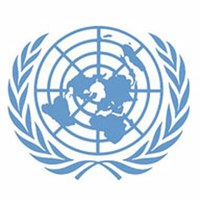A United Nations treaty — or “convention” — on disability has been ratified by enough nations. It went into effect on 3 May 2008 and is now legally binding internationally. MindFreedom psychiatric survivor activists worked for years with hundreds of other advocates to achieve this victory.
United Nations treaty on disability goes into effect.
3 May 2008 Update:
MindFreedom International United Nations team, headed by Celia Brown, worked for many years with dozens of other groups, including World Network of Users and Survivors of Psychiatry, on a “Convention” or treaty on disability rights.
For a copy of WNUSP implementation guide click here.
After the 20th nation ratified the convention, the treaty went into effect on 3 May 2008.
Congratulations to the psychiatric survivor and mental health consumer advocates who joined hundreds of disability advocates and allies internationally in winning this important treaty.
A celebration will be held at the United Nations for adoption of thetreaty, attended by a number of psychiatric survivors members of theMindFreedom UN team, including Celia Brown. MindFreedom member MyraKovary will even play the harp at the event in the GeneralAssembly Hall on 12 May at 12:45 pm ET.
The United Nations will broadcast the celebration at:
Here is the United Nations news release:
SECRETARY-GENERAL BAN HAILS ENTRY INTO FORCE OF TREATY ON DISABILITY RIGHTS
New York, Apr 3 2008 5:00PM
Secretary-General Ban Ki-moon has welcomed the entry into force of the first international treaty on the human rights of persons with disabilities, after the required twentieth country ratified the landmark convention today.
“It is a historic moment in our quest for realization of the universal human rights for ALL persons, creating a fully inclusive society for all,” Mr. Ban’s spokesperson Marie Okabe said in a statement celebrating the rapid progress of the Convention on the rights of Persons with Disabilities, which was adopted in December 2006.
“The Convention will be a powerful tool to eradicate the obstacle faced by persons with disabilities,” she said, pointing to discrimination, segregation from society, economic marginalization, and lack of opportunities for participation in social, political and economic decision-making processes.
Today’s ratification by Ecuador means that the Convention, along with an optional protocol that will allow individuals and groups to petition for relief, will be legally binding as of 3 May. Tunisia and Jordan also ratified the treaty earlier this week.
Through today’s statement, the Secretary-General also congratulated the States that have ratified or acceded to the Convention. Some 126 countries have signed the Convention since 30 March 2007, and 71 have signed the optional protocol.
“It is estimated that there are at least 650 million persons with disabilities worldwide, of whom approximately 80 percent live in less developed countries,” Ms. Okabe noted.
As many as two-thirds of United Nations Member States do not have any legal protection for people with disabilities, according to the UN Focal Point on Disability Akiko Ito, even though they comprise one in 10 of the global population.
“The Convention, together with its Optional Protocol, is deeply rooted in the firm commitment of the international community to rectifying the egregious neglect and dehumanizing practices that violate the human rights of persons with disabilities,” Ms. Okabe concluded, calling on all States that have not yet done so to accede or ratify it without delay.
In a statement issued this past weekend, more than 20 UN departments, agencies, programmes, and funds pledged their support to implementing the convention.
The newly-formed Inter-Agency Support Group for the Convention said that support will focus on six main areas: policies to support the purpose and objectives of the Convention; programmes including international cooperation; capacity-building of Member States, civil society, and the UN system; research and access to knowledge on disabilities; accessibility; and the Committee on the Rights of Persons with Disabilities.
Document Actions


